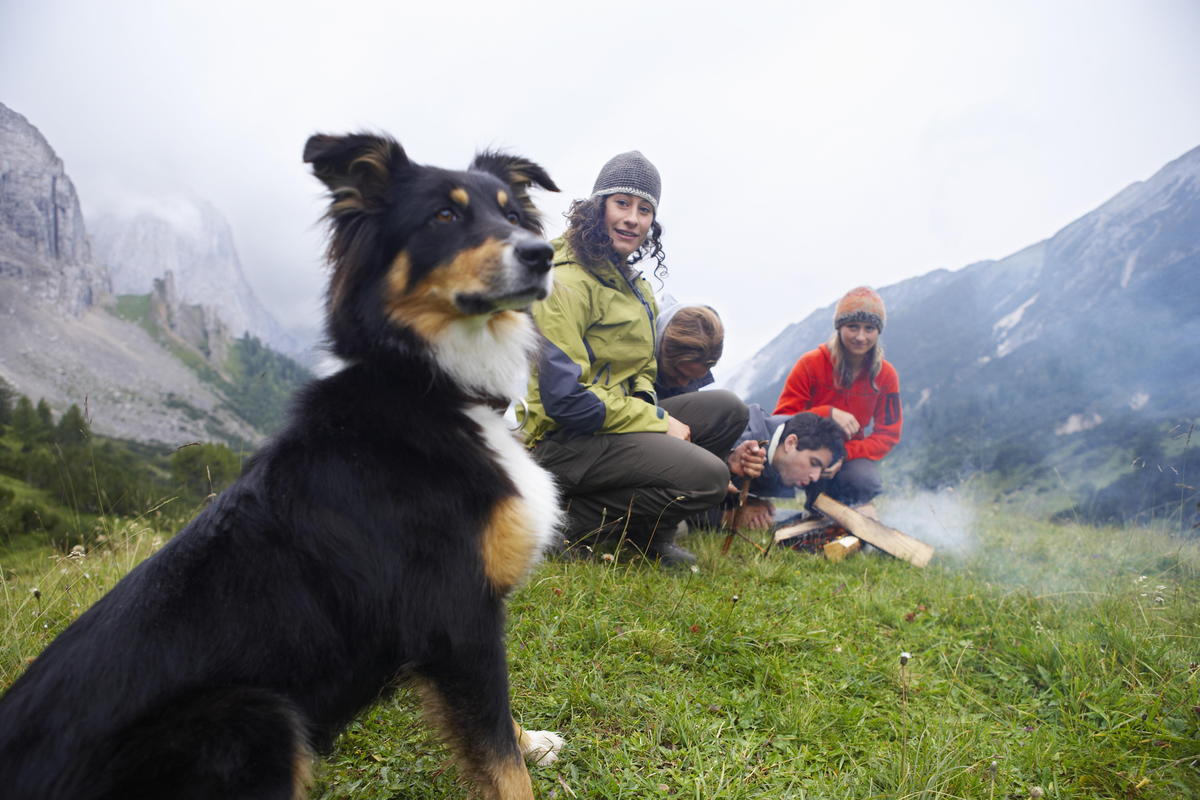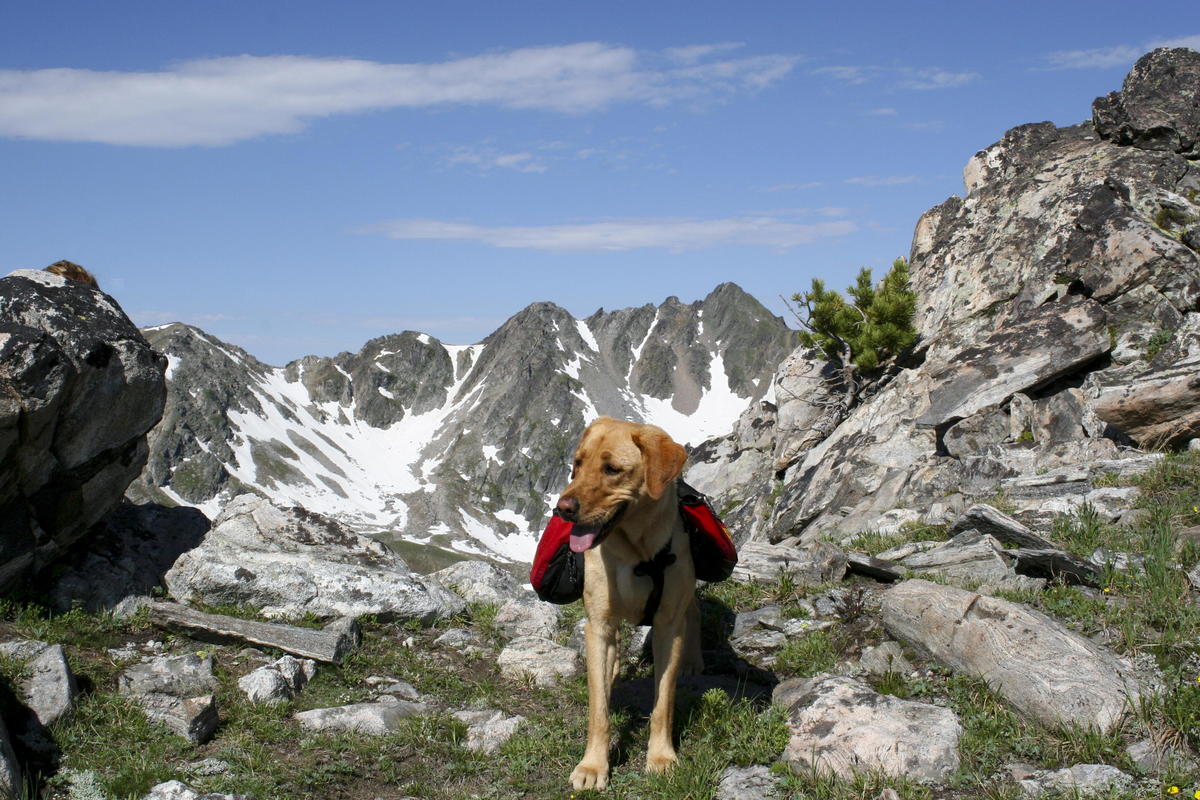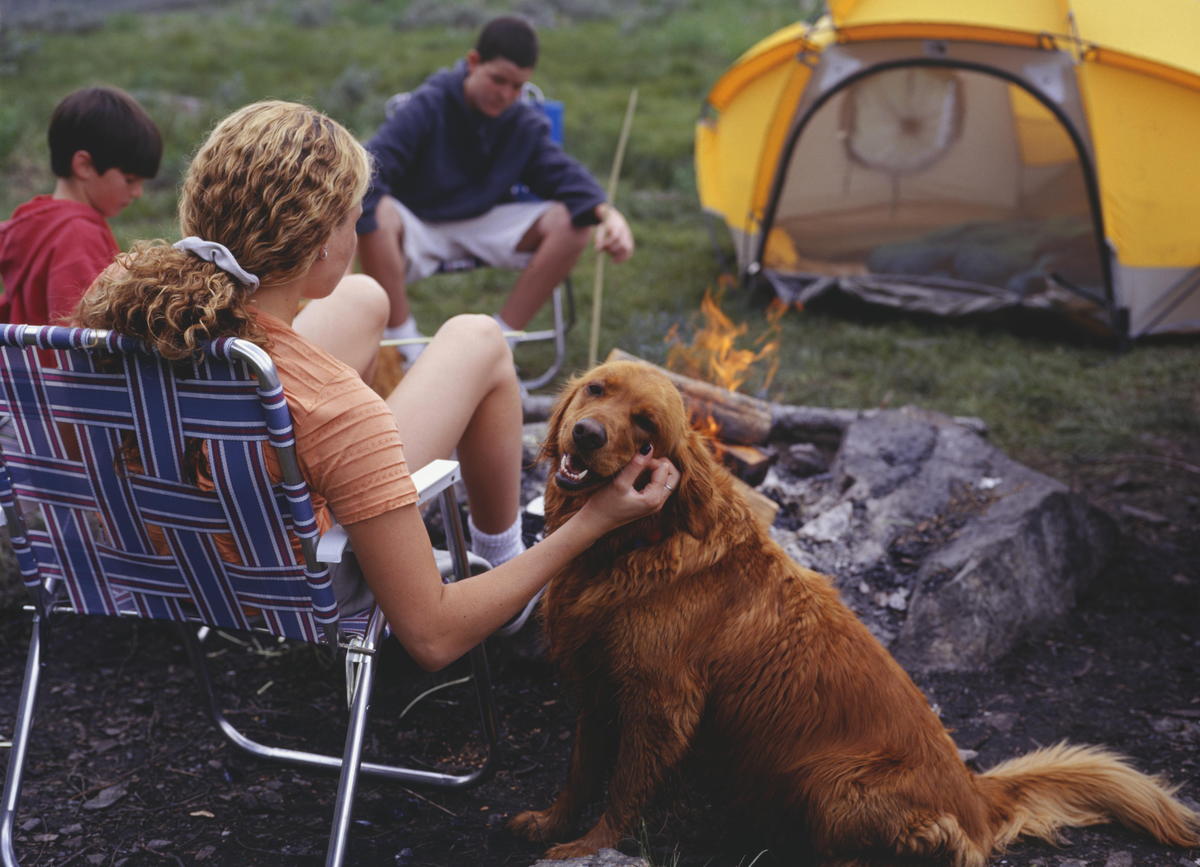Find this story online at the Coloradoan here.
Happy tails: Camping with your dog
 Summer is an exciting time for Coloradans who love to go camping, and our dogs are equally excited to get back into the woods! Before you take your first wilderness trek, keep in mind some preventative measures you can take with your pets so they are healthy and prepared.
Summer is an exciting time for Coloradans who love to go camping, and our dogs are equally excited to get back into the woods! Before you take your first wilderness trek, keep in mind some preventative measures you can take with your pets so they are healthy and prepared.
The doctors at Advanced Animal Care of Colorado put together these tips and reminders to make your next camping trip with Fido as safe and as fun as possible.
Creepy Crawlies
Nobody wants to share a tent with more guests than the ones you invited.
Flea and tick preventatives are important to minimize these pests from attaching onto dogs and transmitting diseases. Apply atopical preventative that is recommended by your veterinarian, such as Activyl or K-9 Advantix, 48 hours prior to your departure. Ticks are abundant in our wooded and grassy regions so plan to search your pet during and after an outdoor adventure.
Also, make sure you have been giving a monthly heartworm and intestinal parasite dewormer, such as Sentinel Spectrum, since pets pick up heartworms from mosquitos and intestinal worms commonly from soil. Many other transmittable disease can be vaccinated against by your local veterinarian, and if you regularly have your dog in the great outdoors they should be up to date on vaccines such as Leptospirosis, Rabies, Distemper and Parvovirus, and Bordetella to name a few.

Remember to be checking your dog’s foot pads on warm hikes for blisters and wounds, and begin a conditioning program that eases your pet into the length and duration of your hikes to avoid injuries from the weekend warrior mentality. (Photo: AdventureStock, Getty Images/iStockphoto)
Expect the Unexpected
One of the many reasons that camping is exciting in our state is the rapid weather changes and abundant wildlife, but both can pose risks when camping with a dog.
For small dogs or those with short hair, bringing a jacket can make a huge difference in their comfort level on a long, cold night. Keeping a dry towel and dry bedding for unexpected rain is also a must!
In the event that Rover gets a cut or stung by an insect, you should have a small first aid kit including biodegradable soap to cleanse the wound, Telfa pads (sealed, sterile cotton pads) to cover the site, and self-adhering flexible bandage to wrap the area not too tightly.
Also, Benadryl 25 mg tablets (diphenhydramine) are great to have on hand if you notice swelling or itching after a bug bite or bee sting and can be given once as 1 mg per 1 pound of the dog's body weight (not to exceed 50 mg) as you should seek medical attention immediately for any injury.
Close Encounters
Take caution with off-leash activity because pets are very curious about wildlife and snakes, which can create a life-threatening situation for your pet. Most campsite rules state the leash can be no longer than 6 feet to help minimize this risk, but if an injury or snakebite occurs the best course of action is to keep yourself and your pet as calm as possible and get to a veterinarian.

For small dogs or those with short hair, bringing a jacket can make a huge difference in their comfort level on a long, cold night. Keeping a dry towel and dry bedding for unexpected rain is also a must! (Photo: Steve Mason, Getty Images)
Food and Water
Mountain lions, raccoons, and bears OH MY! These critters are curious particularly about food, and not just the human kind. Keep your pet's food in a designated food storage locker along with any treats or other smelly items.
While out on the trails, keep a water source not only for yourself but also for your pet with a water bowl if possible. Streams and other bodies of water often have giardia and bacteria that can create severe diarrhea if consumed.
Happy Trails
Remember to be checking your dog's foot pads on warm hikes for blisters and wounds, and begin a conditioning program that eases your pet into the length and duration of your hikes to avoid injuries from the weekend warrior mentality.
Now that you have some tips and tools for success, the last step is to HAVE FUN!
Camping Checklist:
- Up to date on all vaccines.
- Medications the pet regularly needs and medical papers in car.
- Flea/tick/heartworm preventative.
- Jacket.
- Towel/ Dry bedding.
- Leash no longer than 6 feet.
- Collar/harness with identification including rabies tag and microchip information.
- Food storage lockers on site.
- Water and food bowls with Trooper's kibble.
- First aid kit- Self-adhering flexible bandage, Benadryl for insect stings/bites, Telfa pads, tweezers, biodegradable soap.
- Picture of your pet in case he/she gets lost.
Presented by Advanced Animal Care of Colorado. Striving to bring complete care to our patients and our community. Call us at (970) 493-3333.